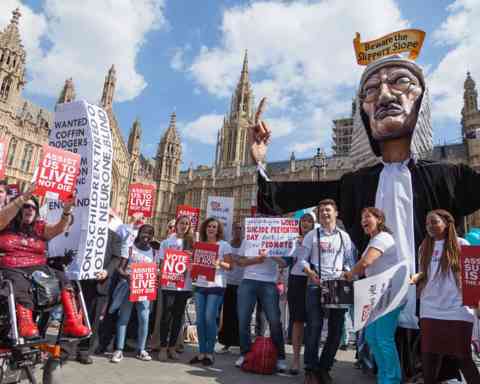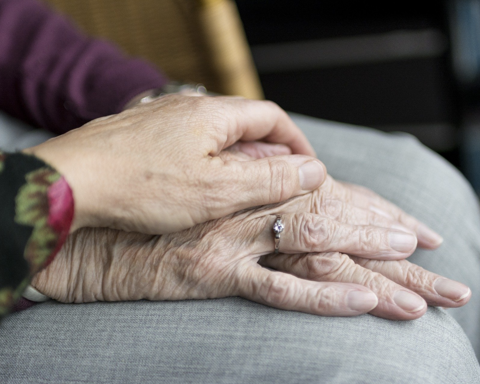𝘋𝘪𝘨𝘯𝘪𝘵𝘢𝘴 𝘐𝘯𝘧𝘪𝘯𝘪𝘵𝘢’s Vital Contribution to Current Debates
Read in PDFThe Declaration on Human Dignity (Dignitas infinita) was released to seize an opportunity to reaffirm the true meaning of human dignity at a time when many appeal to it, but few can agree on what ‘dignity’ means.
The issue is urgent because, as mentioned in Cardinal Fernández’ prologue, human dignity is something ‘we are all called to recognise as a fundamental condition for our societies to be truly just, peaceful, healthy, and authentically human.’ It is vital, then, to clarify the true meaning of dignity, especially given that ‘the phrase “the dignity of the human person” risks lending itself to a variety of interpretations that can yield potential ambiguities.’ [1]
Dignitas infinita seeks to shed light on this issue by first making some important distinctions. The Declaration distinguishes the possibility of a fourfold distinction of the concept of dignity: ontological dignity, moral dignity, social dignity and existential dignity.
‘Moral dignity’ refers to how we use our freedom, which may or may not use in a way that is morally upright, and hence dignified. ‘Social dignity’ refers to ‘the quality of a person’s living conditions. For example, in cases of extreme poverty, where individuals do not even have what is minimally necessary to live according to their ontological dignity, it is said that those poor people are living in an “undignified" manner.’ [2] ‘Existential dignity’ refers to the sense of living a dignified or undignified life that is caused not by lacking some material necessity. It refers instead to one’s struggle to have a sense of joy and hope due to ‘the presence of serious illnesses, violent family environments, pathological addictions, and other hardships may drive people to experience their life conditions as “undignified”’. [3]
The most important concept, however, is 'the ontological dignity that belongs to the person as such simply because he or she exists and is willed, created, and loved by God.’ [4] Whereas moral dignity can be lost by acting wrongly, social dignity can be lost by inadequate living conditions, and existential dignity can be lost by a sense of despair, ontological dignity by contrast can never be lost. 'Ontological dignity is indelible and remains valid beyond any circumstances in which the person may find themselves. … Our dignity is bestowed upon us by God; it is neither claimed nor deserved. Every human being is loved and willed by God and, thus, has an inviolable dignity.’ [5]
The ontological dignity of every person is, crucially, rooted in the kind of creature we are, not in the actions we can perform or abilities we can exercise at any given time. Our potential ability to know and understanding, to desire and choose, are the reason why we are of a rational nature, and yet our ontological dignity does not depend on those capacities being exercised well, or on their being exercised at all. As the Declaration clearly says:
‘Even if a person is unable to exercise these capabilities due to various limitations or conditions, nevertheless the person always subsists as an “individual substance” with a complete and inalienable dignity. This applies, for instance, to an unborn child, an unconscious person, or an older person in distress.’ [6]
As mentioned, this is of crucial importance in bioethics when faced with abortion, euthanasia, withdrawal of clinically-assisted nutrition and hydration, and similar practices. The Declaration notes that ‘while there has been a growing awareness of human dignity, many misunderstandings of the concept still distort its meaning.’ [7]
One misunderstanding in particular is the restriction of dignity to those who are deemed persons because they are capable of reasoning. They ‘argue that dignity and rights are deduced from the individual’s capacity for knowledge and freedom, which not all humans possess. Thus, according to them, the unborn child would not have personal dignity, nor would the older person who is dependent upon others, nor would an individual with mental disabilities.’ [8] By contrast, the Declaration states in no uncertain terms: dignity is possessed inherently by every member of the human family, and hence by every person, and therefore does not depend ‘upon a judgment about the person’s ability to understand and act freely’. [9]
The Declaration mentions (non-exhaustively) a number of grave violations of human dignity that are of concern in our time. They include: poverty, war, the travails of migrants, human trafficking, sexual abuse, violence against women, abortion, surrogacy, euthanasia and assisted suicide, the marginalisation of people with disabilities, gender theory, and interventions to attempt to change one’s sex. [10] (The Catholic Bishops of England and Wales released a pastoral document on gender identity on 24 April that refers extensively to Dignitas infinita. [11])
It is worth highlighting in particular the Declaration’s clear teaching that ‘dignity is not something granted to the person by others based on their gifts or qualities, such that it could be withdrawn. Were it so bestowed, it would be given in a conditional and alienable way, and then the very meaning of dignity (however worthy of great respect) would remain exposed to the risk of being abolished.’ [12]
This is of particular importance for ongoing debates in Holyrood, and perhaps soon in Westminster as well, about whether to legalise assisted suicide. This is a unique problem because ‘it utilises a mistaken understanding of human dignity to turn the concept of dignity against life itself. … laws permitting euthanasia or assisted suicide are sometimes called “death with dignity acts.”’ [13] However, ‘it must be strongly reiterated that suffering does not cause the sick to lose their dignity, which is intrinsically and inalienably their own.’ [14]
We ought to support giving the terminally ill ‘all suitable and necessary efforts to alleviate their suffering through appropriate palliative care and by avoiding aggressive treatments or disproportionate medical procedures.’ [15] And yet, ‘human life carries a dignity that must always be upheld, that can never be lost … there are no circumstances under which human life would cease from being dignified and could, as a result, be put to an end’. [16] We must never help the suffering to take their lives, even if it be their wish. ‘Life is a right, not death, which must be welcomed, not administered. And this ethical principle concerns everyone, not just Christians or believers.’ [17]
In light of current debates, the Anscombe Bioethics Centre welcomes the clear statement of principles given in Dignitas infinita, and urges all who are involved in debates about bioethical matters to consider carefully its teaching.
Dr Mehmet Çiftçi, Public Bioethics Fellow
[1] Dicastery for the Doctrine of the Faith, ‘Declaration Dignitas infinita on Human Dignity’ (2 April 2024), 7.
[2] Ibid., 8.
[3] Ibid.
[4] Ibid., 7.
[5] Ibid.
[6] Ibid., 9.
[7] Ibid., 24.
[8] Ibid.
[9] Ibid., 7.
[10] Ibid., 36–62.
[11] Intricately Woven by the Lord: A pastoral reflection on gender by the Catholic Bishops of England and Wales (24 April 2024).
[12] Op. cit., Dignitas infinita, 15.
[13] Ibid., 51.
[14] Ibid.
[15] Ibid., 52.
[16] Ibid.
[17] Ibid.
Most recent
Euthanasia & Assisted Suicide: Writing or Speaking to your Elected Representative
25 October 2024
A Guide on how to write to write to your MP (if resident in the UK, Deputy (if in Ireland), or MSP (...
Eight Reasons Why We Must Not Legalise ‘Assisted Dying’
25 October 2024
A short summary of some key arguments against legalising assisted suicide.
Anscombe Centre Briefing – Consultation on Assisted Suicide in Scotland
17 July 2024
Our Guide to the 07 June 2024 to 16 August 2024 Scottish Consultation on the Assisted Dying for Term...
Sincerest Thanks for Your Support
Staff are grateful to all those who sustained the Centre in the past by their prayers and the generous financial support from trusts, organisations, communities and especially from individual donors, including the core funding that came through the Day for Life fund and so from the generosity of many thousands of parishioners. We would finally like to acknowledge the support the Centre has received from the Catholic community in Ireland, especially during the pandemic when second collections were not possible.
We would like to emphasise that, though the Centre is now closed, these donations have not been wasted but have helped educate and support generations of conscientious healthcare professionals, clerics, and lay people over almost 50 years. This support has also helped prevent repeated attempts to legalise euthanasia or assisted suicide in Britain and Ireland from 1993 till the end of the Centre’s work on 31 July 2025.



